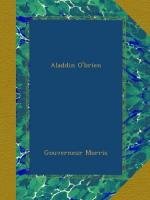For two hours that terrible cannonading was maintained. The men who served the guns looked like stokers of ships, for, such was the heat, many of them, casting away first one piece of clothing and then another, were half naked, and black sweat glistened in streams on their chests and backs. As sight-seers crowd in eagerly by one door of a building where there is an exhibition, and come reluctantly out by another and go their ways, so the reserves kept pressing to the front, and the wounded maintained an unceasing reluctant stream to the rear.
A little before three o’clock Hannibal St. John had his right knee smashed by the exploding of a caisson, and fell behind one of the guns of his battery. He was so sure that he was to be killed on this day that it had never occurred to him that he might be trivially wounded and carried to the rear in safety. An expression of almost comical chagrin came over his face, for life was nothing to him, and somewhere far above the smoke a goodly welcome awaited him: that he knew. Men came with a stretcher to carry him off, but he cursed them roundly and struggled to his well knee. The cannon behind which he had fallen was about to be discharged.
“Give ’em hell!” cried Hannibal.
As he spoke, the piece was fired, and leaping back on the recoil, as a frenzied horse that breaks its halter, one of the wheels struck him a terrible blow on the body, breaking all the ribs on that side and killing him instantly. His face wore a glad smile, and afterward, when Aladdin found him and took the gold locket from his pocket, and read the inscription written, a great wonder seized men:
July
3, 1863.
Nunc
dimittis.
Te
Deum laudamus.
Thus in one battle fell the three strong hostages which an old man had given to fortune.
XXXV
Three o’clock the Union batteries were ordered to be silent, for it was well known to those in command that presently there would be a powerful attack by infantry, for which the cannonade was supposed to have paved the way with death and disorder, and it was necessary that the pieces should be kept cool in order to be in efficient condition to grapple with and suppress this attack. Sometimes a regiment, stung to a frenzy of courage by bullets and the death of comrades, will rise from its trench without the volition of its officers, and go frantically forward against overwhelming odds. A different effect of an almost identical psychological process is patience. Men will sometimes lie as quietly under a rain of bullets, in order to get in one effective shot at an enemy, as cattle in the hot months will lie under a rain of water to get cool. It was so now. The whole Union army was seized by a kind of bloody deliberation and lay like statues of men, while, for quarter of an hour more, the Confederates continued to thunder from their guns. Now and again a man felt lovingly the long black tube of a cannon to see if its temperature was falling. Others came hurrying from the rear with relays of powder, shot, shell, and canister.




